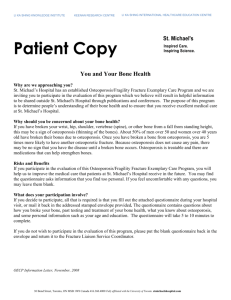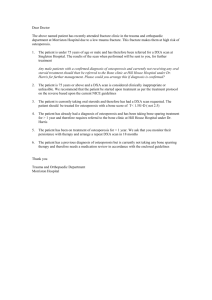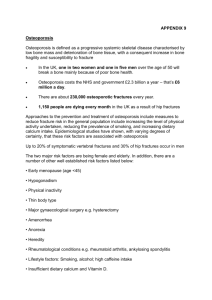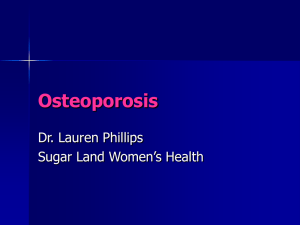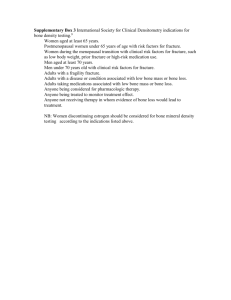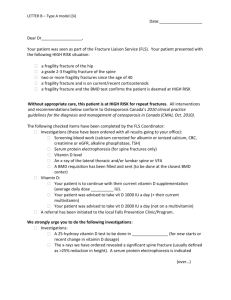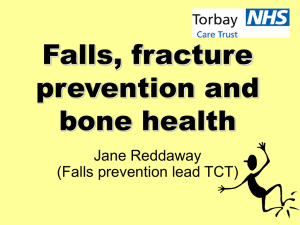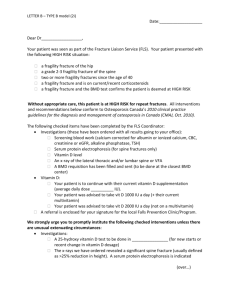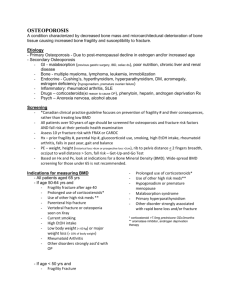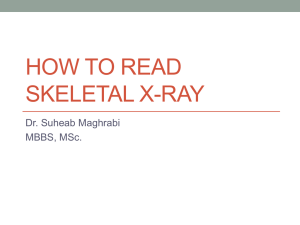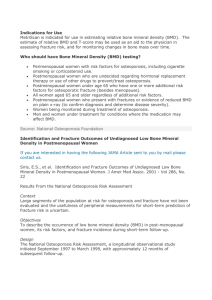Patient Order Set Family Physician Information Form open
advertisement
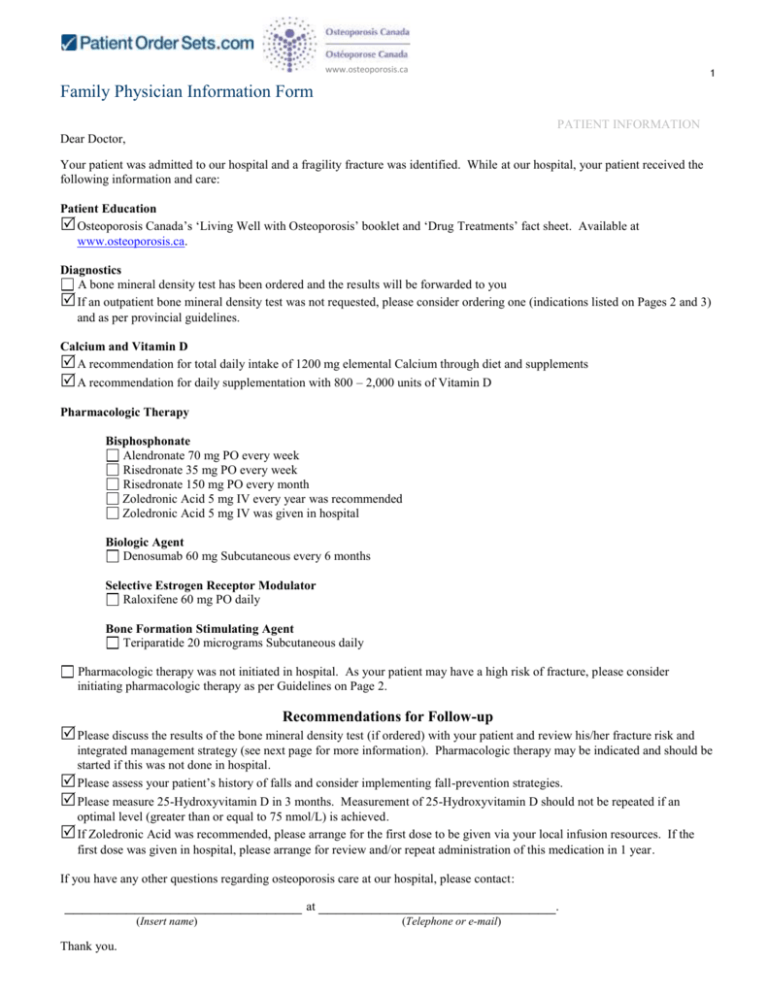
www.osteoporosis.ca 1 Family Physician Information Form PATIENT INFORMATION Dear Doctor, Your patient was admitted to our hospital and a fragility fracture was identified. While at our hospital, your patient received the following information and care: Patient Education Osteoporosis Canada’s ‘Living Well with Osteoporosis’ booklet and ‘Drug Treatments’ fact sheet. Available at www.osteoporosis.ca. Diagnostics A bone mineral density test has been ordered and the results will be forwarded to you If an outpatient bone mineral density test was not requested, please consider ordering one (indications listed on Pages 2 and 3) and as per provincial guidelines. Calcium and Vitamin D A recommendation for total daily intake of 1200 mg elemental Calcium through diet and supplements A recommendation for daily supplementation with 800 – 2,000 units of Vitamin D Pharmacologic Therapy Bisphosphonate Alendronate 70 mg PO every week Risedronate 35 mg PO every week Risedronate 150 mg PO every month Zoledronic Acid 5 mg IV every year was recommended Zoledronic Acid 5 mg IV was given in hospital Biologic Agent Denosumab 60 mg Subcutaneous every 6 months Selective Estrogen Receptor Modulator Raloxifene 60 mg PO daily Bone Formation Stimulating Agent Teriparatide 20 micrograms Subcutaneous daily Pharmacologic therapy was not initiated in hospital. As your patient may have a high risk of fracture, please consider initiating pharmacologic therapy as per Guidelines on Page 2. Recommendations for Follow-up Please discuss the results of the bone mineral density test (if ordered) with your patient and review his/her fracture risk and integrated management strategy (see next page for more information). Pharmacologic therapy may be indicated and should be started if this was not done in hospital. Please assess your patient’s history of falls and consider implementing fall-prevention strategies. Please measure 25-Hydroxyvitamin D in 3 months. Measurement of 25-Hydroxyvitamin D should not be repeated if an optimal level (greater than or equal to 75 nmol/L) is achieved. If Zoledronic Acid was recommended, please arrange for the first dose to be given via your local infusion resources. If the first dose was given in hospital, please arrange for review and/or repeat administration of this medication in 1 year. If you have any other questions regarding osteoporosis care at our hospital, please contact: ___________________________ at ___________________________. (Insert name) Thank you. (Telephone or e-mail) www.osteoporosis.ca 2 Family Physician Information Form Adapted and reprinted from Alexandra Papaioannou et al “2010 clinical practice guidelines for the diagnosis and management of osteoporosis in Canada: summary, figure 2: integrated approach to management of patients who are at risk for fracture”, Canadian Medical Association Journal, volume 182, issue 17, page 1870. © Canadian Medical Association 2010. This work is protected by copyright and the making of this copy was with the permission of the Canadian Medical Association Journal (www.cmaj.ca). Any further alteration of its content or further copying in any form whatsoever is strictly prohibited unless otherwise permitted by law www.osteoporosis.ca 3 Family Physician Information Form Deciding on Pharmacological Treatment Post Fracture Other fragility fractures after age 50 years Fragility fracture of the hip or spine or more than one fragility fracture is automatically High Risk Encourage basic bone health for all individuals over age 50, including: regular active weight-bearing exercise, calcium (diet and supplements) 1,200 mg daily, vitamin D: 800 – 2,000 IU daily, and fall prevention strategies and INITIAL BMD TESTING Fracture Risk Assessment (2010 CAROC or Canadian FRAX Tools) Moderate Risk Further Risk Assessment Repeat BMD in 1-3 years and reassess risk No Additional Risk Factors Factors that Warrant Consideration for Pharmacological Therapy: •Vertebral fracture(s) identified on VFA or lateral spine X-ray •Individuals older than age 65 •Individuals with T-score ≤ -2.5 •Lumbar spine T-score much lower than femoral neck T-score •Falling 2 or more times in the past 12 months •Other disorders or medications associated with osteoporosis, rapid bone loss or fractures High Risk Treat or refer for treatment Monitoring by Primary Care Practitioner. Mention bone health issue in referral letter. www.osteoporosis.ca
